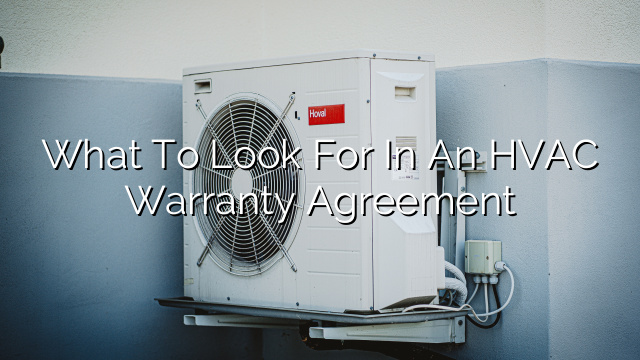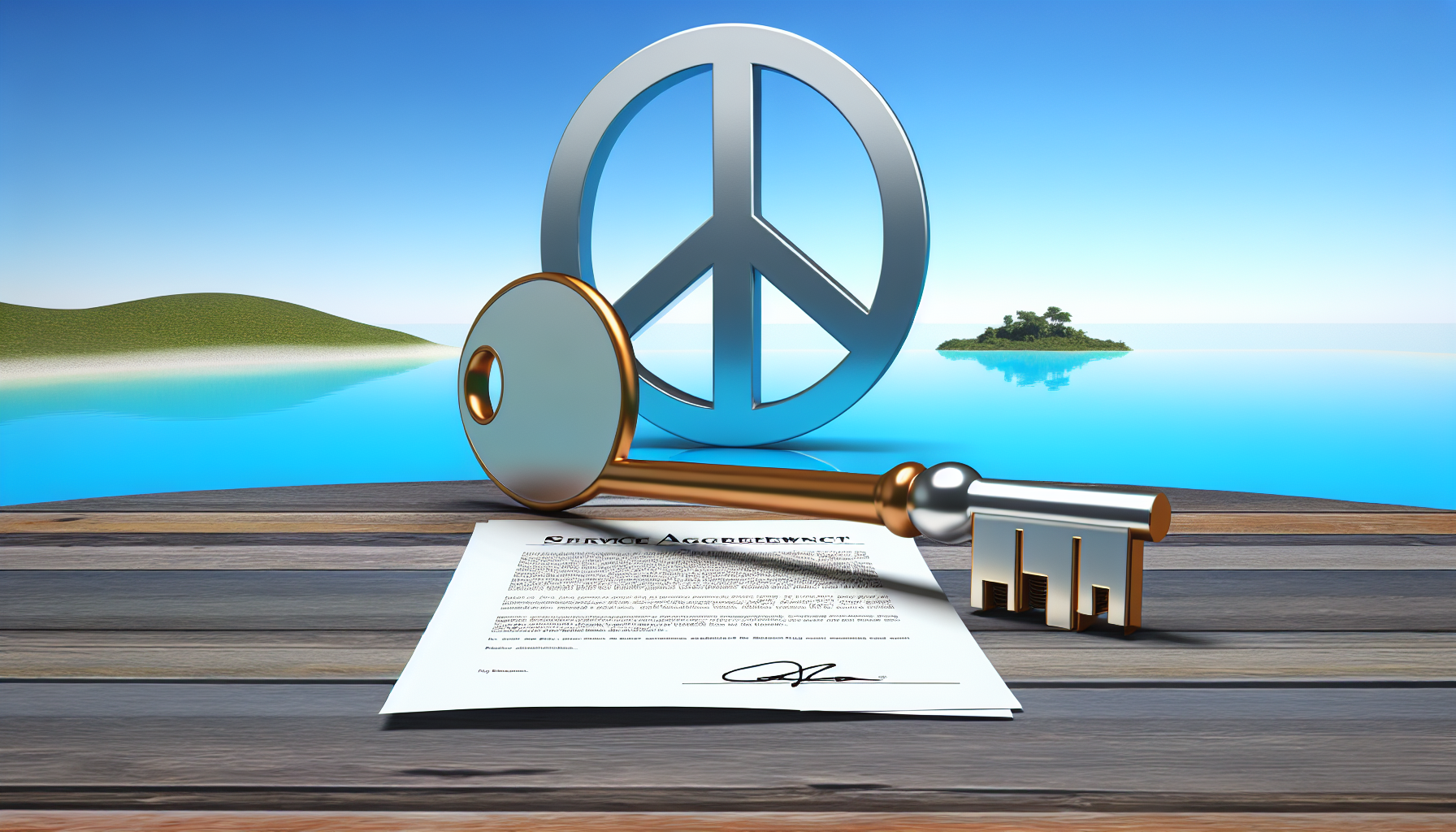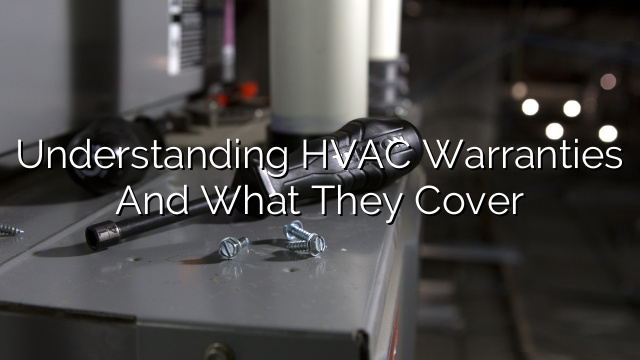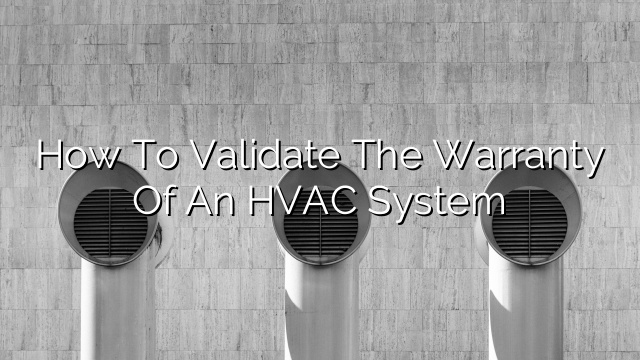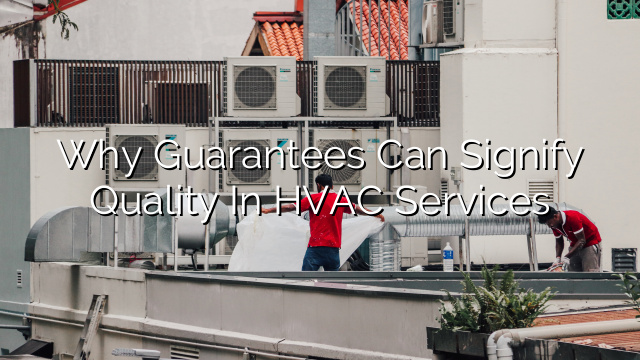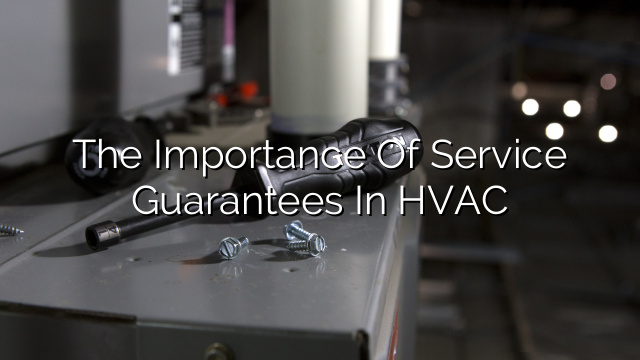What to Look for in an HVAC Warranty Agreement
When hiring an HVAC technician to install or repair your heating, ventilation, and air conditioning system (HVAC), it’s important to consider the warranties and guarantees they offer. A reliable warranty agreement can provide you with peace of mind and protect you from unexpected repair costs down the line. In this article, we will discuss what you should look for in an HVAC warranty agreement to ensure you make the right choice.
Understanding the Types of Warranties
Before diving into the specifics of an HVAC warranty agreement, it’s crucial to understand the different types of warranties available. Here are the most common types:
- Manufacturer Warranty: This warranty is provided by the manufacturer of the HVAC equipment and covers defects in materials or workmanship. It typically lasts for several years and varies depending on the manufacturer.
- Installer Warranty: This warranty is provided by the HVAC technician or company who installs the system. It covers installation-related issues, such as faulty installation or improper sizing.
- Extended Warranty: Sometimes offered as an additional purchase, an extended warranty extends the coverage beyond the standard warranty period. It can be provided by the manufacturer or the installer.
Key Factors to Consider in an HVAC Warranty Agreement
When reviewing an HVAC warranty agreement, pay attention to the following factors:
- Length of Coverage: Determine how long the warranty lasts, both for parts and labor. Most manufacturer warranties cover parts for a specific period, such as 5 or 10 years, while labor coverage is typically shorter, often ranging from 1 to 3 years. Installer warranties may offer different durations, so make sure to compare.
- Transferability: Check if the warranty can be transferred to a new owner if you sell your home. A transferable warranty can increase the value of your property and provide buyers with reassurance.
- Scope of Coverage: Understand what is covered by the warranty. Look for comprehensive coverage that includes major components like the compressor, heat exchanger, and electrical parts. Additionally, verify if the warranty covers both parts and labor costs.
- Exclusions and Limitations: Carefully read the warranty to identify any exclusions or limitations. Common exclusions might include damage caused by improper maintenance or repairs made by unauthorized individuals. Make sure the warranty aligns with your specific needs.
- Maintenance Requirements: Some warranties require regular maintenance by a qualified HVAC technician to remain valid. Understand the maintenance requirements and ensure you are willing to meet them.
- Response Time: Inquire about the average response time for warranty service requests. A reliable HVAC company should provide prompt assistance to minimize disruptions to your comfort.
- Costs and Fees: Determine if there are any costs or fees associated with filing a warranty claim. Some warranties may charge a deductible or require you to cover transportation costs for replacement parts.
FAQs About HVAC Warranty Agreements
Q: Can I purchase an extended warranty after the initial installation?
A: Yes, in many cases, you can purchase an extended warranty even if you didn’t opt for it initially. Speak to your HVAC technician or the equipment manufacturer to inquire about the possibility and cost of extending the warranty coverage.
Q: What happens if I fail to register my HVAC warranty?
A: Failure to register your HVAC warranty may result in a loss or reduction of coverage. Some manufacturer warranties require registration within a specific timeframe for the warranty to be valid. Always carefully read the warranty agreement to understand the registration requirements.
Q: Can I perform maintenance on my HVAC system myself, or do I need a professional?
A: While you can perform basic maintenance tasks like cleaning or replacing air filters, professional maintenance is recommended. Regular professional maintenance not only helps keep your system running smoothly but can also ensure your warranty remains valid.
Q: What if my HVAC system breaks down outside of the standard warranty period?
A: If your HVAC system breaks down outside of the standard warranty period, you may be responsible for the repair costs. This is where an extended warranty can be beneficial, as it can provide coverage for an extended period of time beyond the standard warranty.
Q: Can I hire any HVAC technician to perform repairs under warranty?
A: In most cases, warranty agreements require repairs to be performed by authorized HVAC technicians. Using unauthorized technicians may void the warranty. Always check the warranty agreement for details regarding authorized service providers.
In conclusion, when hiring an HVAC technician, carefully evaluate the warranty agreements they offer. Consider the length of coverage, transferability, scope of coverage, exclusions and limitations, maintenance requirements, response time, and any associated costs or fees. By doing your due diligence, you can choose the best warranty agreement that provides you with the necessary protection and peace of mind.

